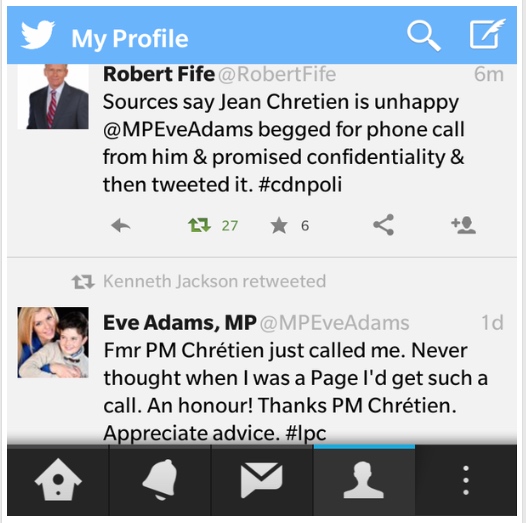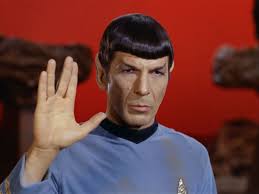You’re the incumbent, you’re smart, you’ve got plenty of experience, but you can’t get ahead in the polls. So what do you do?
You call for a series of leaders’ debates, that’s what you do.
Stephen Harper, however much he disdains the mainstream media, knows one media truism to be irrefutable: politicians are rarely felled by a single news story. If that were not so, Harper would have been long ago dispatched by robocalls, or Afghan detainees, or In-and-Out, or prorogation, or Senators Duffy, Wallin and Brazeau.
But that hasn’t happened. The reason: nowadays, citizens pay less and less attention to the news media. They’re busy. They’re distracted. They’re suspicious of big news organizations, even, often seeing them as just another corporate special interest group.
Harper, being clever, knows this. He knows, therefore, that what matters isn’t a single story. What matters is a whole series of related stories, over a long period of time, incrementally chipping away at a politician’s reputation.
Case in point: Harper’s principal opponent, Justin Trudeau.
Abacus Data released an important poll a few days ago, and you can bet Stephen Harper clipped it out of the paper to keep in his wallet for use with caucus Nervous Nellies. Most of us focused on the tail end of the poll, which showed an equal number of Canadians predicting a Conservative or Liberal election victory. Ipsos came out with a horse race poll a few days later, showing sort of the same thing: the Grits and the Tories were tied in support.
But that was the tail. The head of Abacus’ poll showed something else entirely. It showed that, between last August and now, Justin Trudeau’s inevitability had slipped 15 percentage points. That is, a lot fewer folks expected him to win, now.
Fifteen points.
That’s a lot. The last time that number happened to the Liberal Party of Canada, in fact, was a decade ago. Remember? Paul Martin commenced his “Mad As Hell” tour, and persuaded millions of Canadians to get mad as hell, too—at him. He promptly dropped 15 points and never recovered.
Justin Trudeau, according to Abacus and others, has done something similar, albeit less dramatically. Since August, he has slowly, surely, and incrementally lost the aura invincibility that once clung to him like a seal fur coat.
Stephen Harper, being a student of politics, has a theory about that.
At the very moment that Canadians noticed that Trudeau makes an awful lot of verbal flubs—at the moment Trudeau opposed taking any action against the genocidal force that is ISIS, at the moment he seemingly mocked our military—the Liberal leader commenced a downward descent. He isn’t dead, not by a long shot, but the trend line—as the pollsters call it—isn’t particularly good. It tells a story, one that doesn’t assist Justin Trudeau.
Thus, the debates idea, which The Toronto Star reported on late last week. “Tories consider more debates to trap Justin Trudeau,” the headline read, atop a story replete with the usual anonymous sources. The story went on to quote just one person on the record—NDP Leader Thomas Mulcair—who is all in favour of more debates, too. Surprise, surprise.
Now, it’s possible Trudeau could show up at said debates, and impress everyone. He’s certainly lowered expectations about his verbal dexterity, and then some. So it is possible he could exceed those expectations.
But it’s equally possible—likely, even—that, during one of a series of regional debates, Trudeau will say something that is unhelpful to his cause. And the Tories and the Dippers seize on that—as they did with Ignatieff and Dion—and again persuade a million self-identified Liberal voters to stay home.
Thus, the suggestion that there be a myriad number of debates. For Stephen Harper and Tom Mulcair, it’s a great idea.
For Justin Trudeau, it ain’t.
Comments (11)



